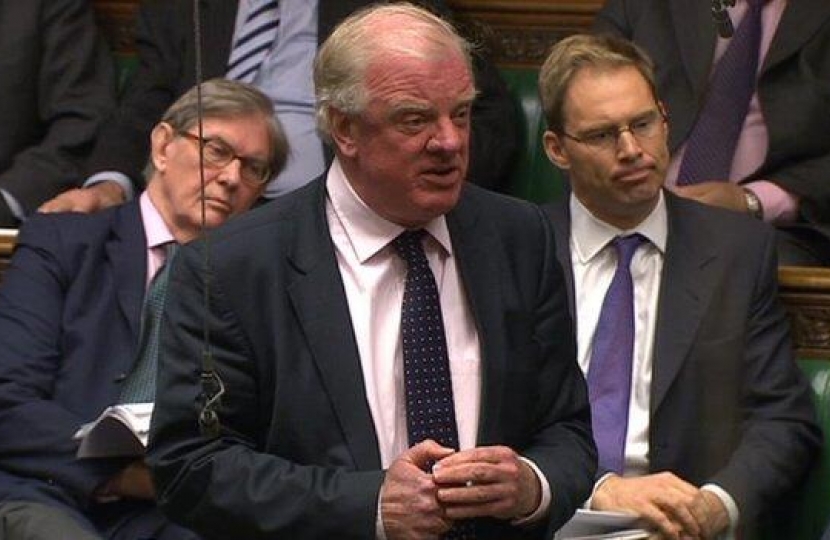
Sir Edward Leigh MP gave this speech to a debate in Westminster Hall on the renegotiation of Britain’s EU membership on 5 January 2016. The debate was organised by Philip Hollobone.
My hon. Friend the Member for Kettering (Mr Hollobone) has given a consummate performance, in which he really summed up the arguments well. There is only time to give a few headlines. The first hero of this debate is, of course, our Prime Minister because, but for him, there would not be a debate. Even our heroine, Margaret Thatcher, never gave us a full referendum on Europe, so we should thank our current Prime Minister profusely for giving the British people the chance to make this historic decision. It will be a most interesting debate, and I will make one or two points about it.
First, the language should be relatively calm. Authoritative studies prove that leaving the EU, or staying in it, would make a difference of only 1% or 2% to gross national product, so leaving the EU would not be a great disaster that will cost 3 million jobs. If we leave the EU, I am not sure there will be an extraordinary nirvana. Let us have a measured debate and keep things in perspective.
Secondly, we do not want to have a debate based on nationalism. We Eurosceptics are not nationalists; we welcome political co-operation and friendship with all the nations of Europe. We welcome Poles, French and Italians coming to live and work here, but it has to be measured migration. Ultimately, when there is net migration of 300,000 into this country, the British Parliament has a right to try to make a decision on such matters.
This negotiation is a missed opportunity. My hon. Friend the Member for Kettering is probably right that perhaps a third of the population definitely want to leave, a third definitely want to stay and a third are in the middle. That last third probably want the comfort of remaining in some sort of relationship or partnership with the EU, but I believe they want to regain the supremacy of Parliament and regain control over fisheries, agriculture and, above all, migration. Given that we are the fifth largest economy in the world, and given that we are now a self-confident nation, we are no longer, as was the wartime generation, transfixed by the prospect of the loss of empire and the belief that we had to be part of a larger political union. We have moved on, and we are a self-confident, successful nation. I believe that we can create a dynamic, mid-Atlantic trading economy outside the EU that can move forward and increase prosperity for all our people. That is what I will be arguing in the EU referendum, and this debate is just one of the first steps along that path.

